
MHS asks COVID-19 recovered to donate plasma for seriously ill
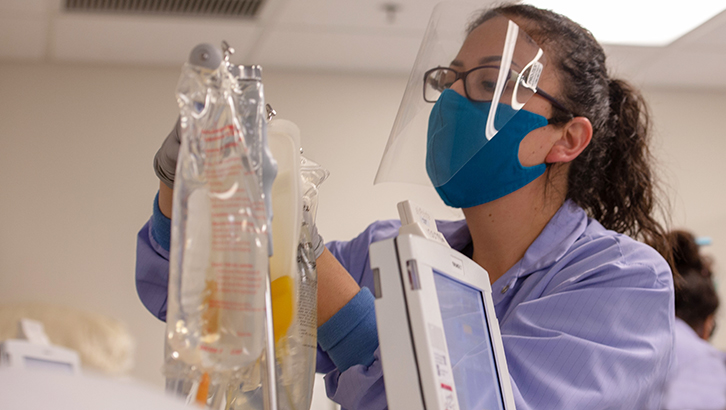
Sarahi Wilson, a phlebotomist assigned to Naval Medical Center San Diego, sets up an apheresis machine for drawing plasma at NMCSD’s Blood Donation Center July 14. (U.S. Navy photo by Mass Communication Specialist 2nd Class Erwin Jacob V. Miciano)
he COVID-19 Convalescent Plasma (CCP) Collection Program is a Department of Defense effort to collect 10,000 units of CCP donated by members of the military community who have recovered from the disease. CCP will be used to treat critically ill patients and to support the development of an effective treatment against the disease. Eligible donors should contact the Armed Services Blood Program at https://www.militaryblood.dod.mil/Donors/COVID-19andBloodDonation.aspx to find a complete list of available collection centers.
Patients who have recovered from COVID-19 can expect a call from a military hospital or from the Armed Services Blood Program alerting them of the opportunity to donate their plasma to help critically ill patients recover. The calls are part of the Military Health System response to the pandemic.
“The ASBP celebrates those who have fully recovered from COVID-19. We are asking for you to consider donating plasma via apheresis or whole blood donation process to help give others a fighting chance,” said Army Col. Audra L. Taylor, ASBP division chief.
Blood collection agencies such as the Blood Centers of America, the American Red Cross, and the ASBP are collecting COVID-19 convalescent plasma, or CCP. Plasma collections based on MHS outreach follow safety guidelines set by the Food and Drug Administration.
The ASBP provides blood products to the MHS and helps meet demand within the Department of Defense, said Army Col. Jason Corley, director of the Army Blood Program. The CCP collected will help beneficiaries within the MHS, but it’s also a readiness issue, he said.
“If a donor donates today, it [the plasma] could be used in one of our garrison hospitals, or it could be sent aboard a Navy ship or to our forces in U.S. Central Command to make sure they have it on hand and are medically ready,” said Corley. Frozen plasma can last up to one year, he added. “It’s definitely a way to treat the force and protect the force.”
Representatives from military hospitals and the ASBP are calling recovered patients to inform them about donating plasma and explain donation requirements. Potential donors who have recovered from COVID-19 must be symptom-free for at least 14 days since they were last tested positive. The ASBP will test the donated plasma for SARS-CoV-2, the virus that causes COVID-19, antibodies and alert the donor with a written letter about the presence of such antibodies, Corley added. Those who are eligible may donate whole blood every eight weeks or plasma by apheresis more frequently based on blood donor center guidance and donor qualification.
The ASBP is collecting CCP donations at nearly all of its donor centers with the exception of the Pentagon Blood Donor Center. Donating plasma can take anywhere between 45 and 90 minutes, producing two to three units from one visit. Anyone who has questions about the MHS outreach effort to collect donated COVID-19 convalescent plasma can contact their local blood center by visiting the ASBP website.
“For those who have donated, whether for CCP or regular blood donations, we at the ASBP want to sincerely thank you for taking time to do that,” said Corley. “We encourage everyone, regardless of whether you’ve been COVID-positive or not, if you're interested in blood donation, please reach out to us. We always need help and we couldn't do this without our volunteers.”
MTFs plan and prepare to face any emergency or disaster
Article
8/4/2020
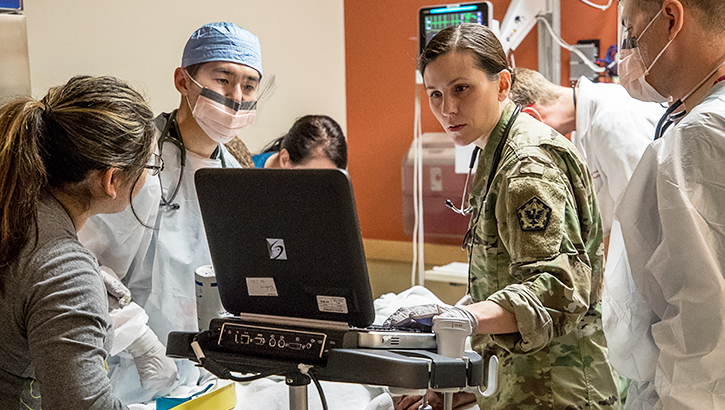
Military hospitals make emergency plans and conduct practice drills long before a natural disaster strikes.
Air Force mental health team provides for deployed troops
Article
8/4/2020
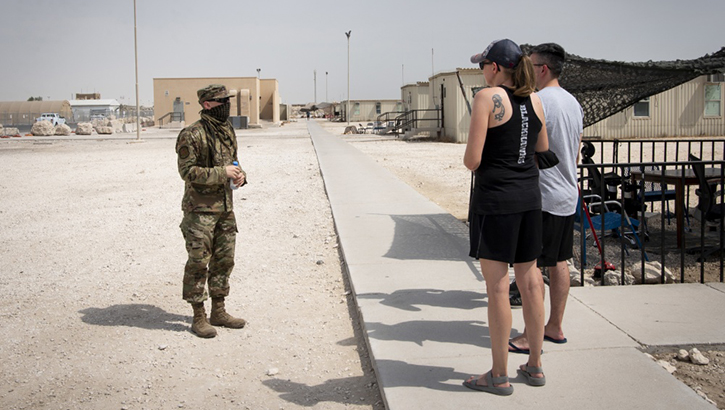
The Disaster Mental Health team helps combat the stressors of the novel coronavirus and improves the overall well-being of service members of Al Udeid Air Base in Qatar.
DoD leadership updates Pentagon on COVID-19 testing capabilities
Article
8/3/2020
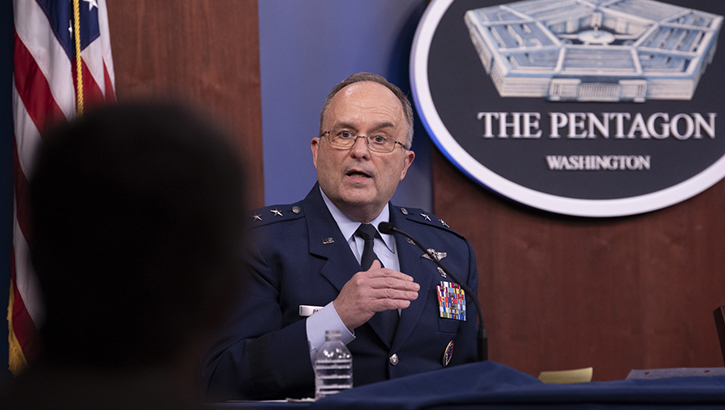
How COVID-19 testing helps prevent spread of the virus
Army Medicine leaders visit BACH’s COVID-19 frontlines
Article
8/3/2020
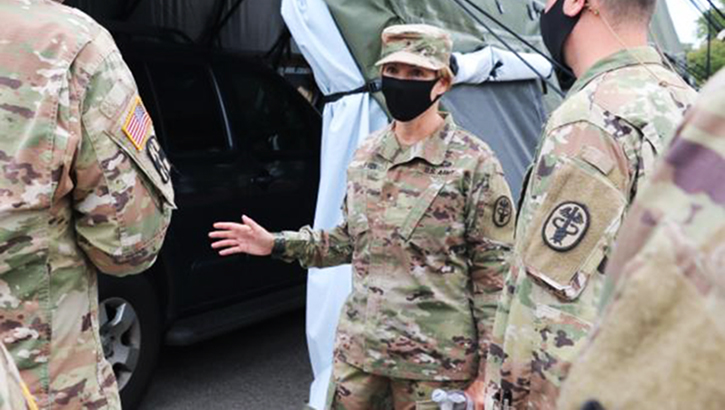
The commander shared both successes and challenges in the face of a global pandemic.
Air Force medical technician drawn to caring for others
Article
7/31/2020
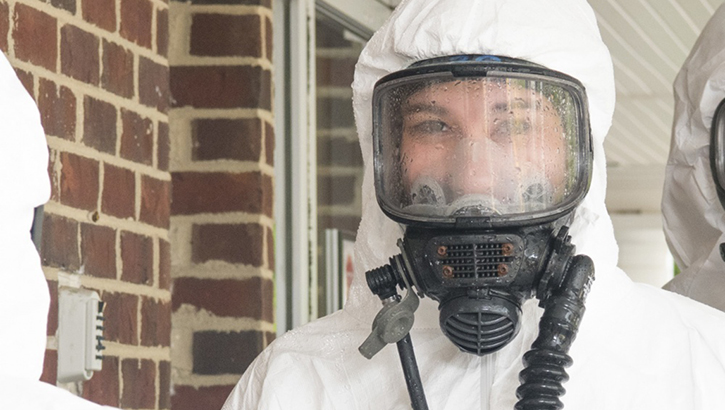
"As a medic, my job is to test people for the virus to help make sure they’re safe."
In this Together: Military Couple Recovers from COVID-19, Donates Convalescent Plasma
Article
7/30/2020
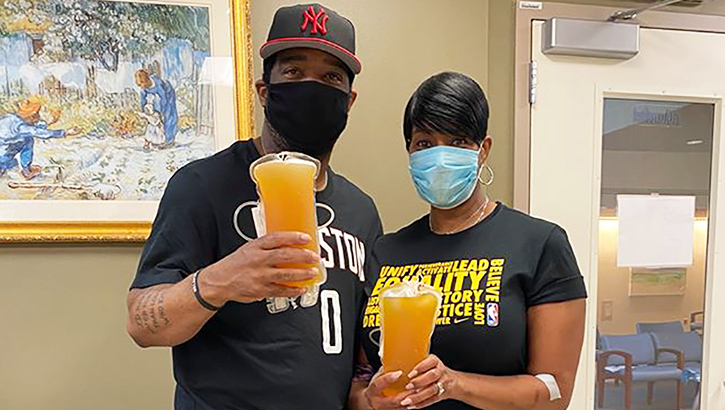
There is information that suggests CCP might help some patients recover from the disease.
Military Health System experts discuss COVID-19 innovations
Article
7/30/2020
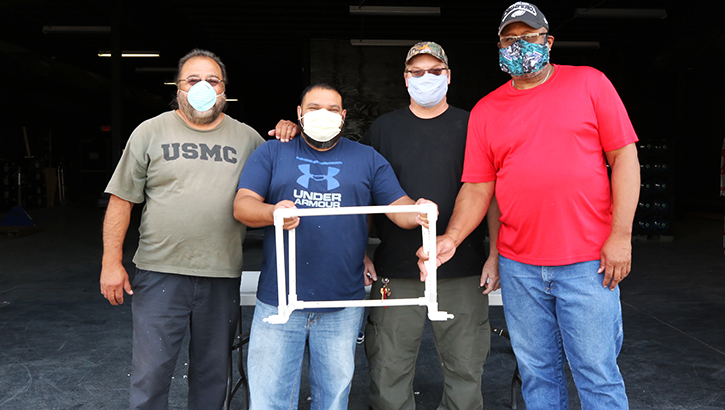
How quick thinking and new approaches are saving lives in the pandemic fight.
DoD COVID-19 Practice Management Guide Version 5
Technical Document
7/30/2020
This Practice Management Guide does not supersede DoD Policy. It is based upon the best information available at the time of publication. It is designed to provide information and assist decision making. It is not intended to define a standard of care and should not be construed as one. Neither should it be interpreted as prescribing an exclusive course of management. It was developed by experts in this field. Variations in practice will inevitably and appropriately occur when clinicians take into account the needs of individual patients, available resources, and limitations unique to an institution or type of practice. Every healthcare professional making use of this guideline is responsible for evaluating the appropriateness of applying it in the setting of any particular clinical situation. The Practice Management Guide is not intended to represent TRICARE policy. Further, inclusion of recommendations for specific testing and/or therapeutic interventions within this guide does not guarantee coverage of civilian sector care. Additional information on current TRICARE benefits may be found at www.tricare.mil or by contacting your regional TRICARE Managed Care Support Contractor.
McCaffery offers HA perspective to COVID-19
Article
7/29/2020
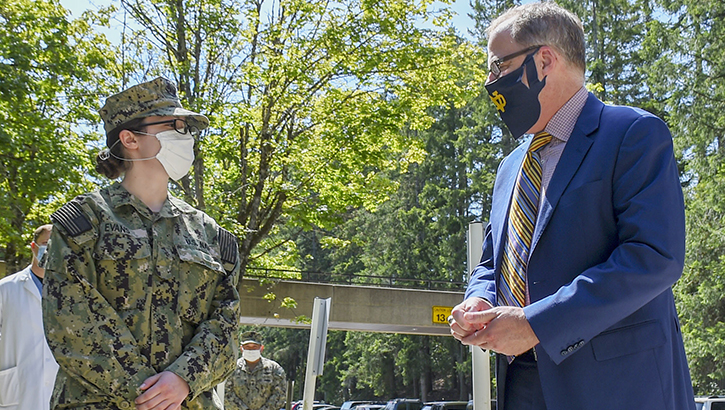
How a whole-government effort aided in pandemic response
Marines donate plasma in fight against COVID-19
Article
7/29/2020
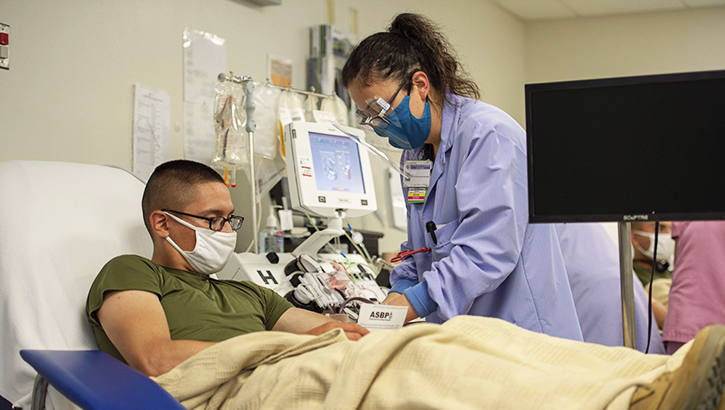
All of the Marines volunteered to donate their plasma with the hope that their antibodies will help others.
Bliss blood program faces supply shortage; begins testing for coronavirus antibodies
Article
7/27/2020
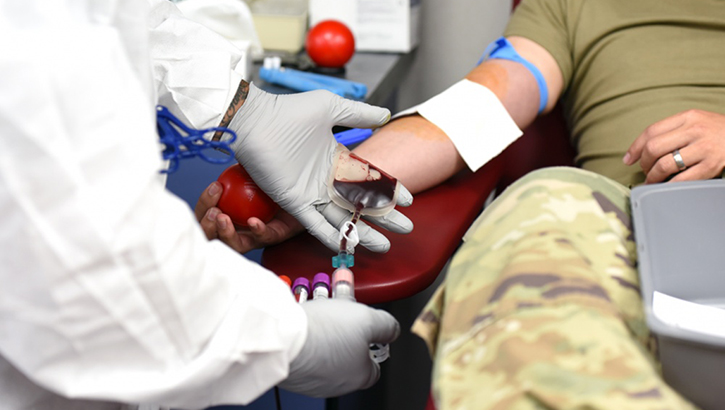
[A]ntibodies do not indicate immunity from the virus; it simply means the patient was exposed to it.
USS Nimitz certified to administer CCP
Article
7/24/2020
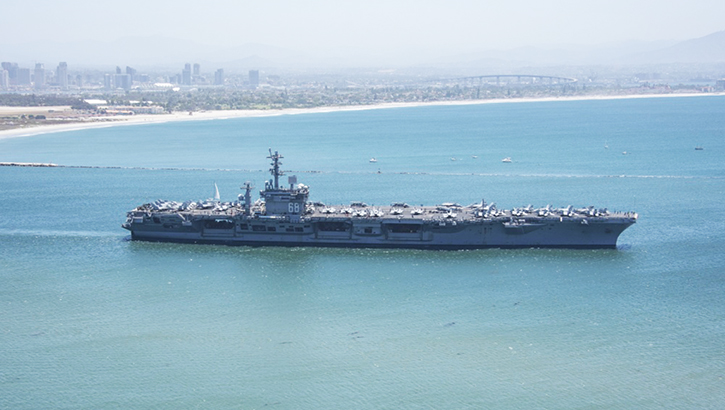
Navy carrier crews take care of their shipmates.
MHS emphasizes importance of vaccinations
Article
7/22/2020
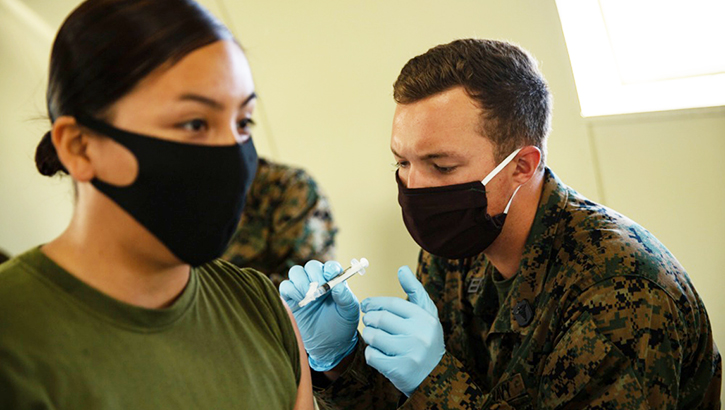
Get questions answered during live Q&A on July 23
Determined to Serve: Critical care nurse joins the Reserve at age 50
Article
7/22/2020
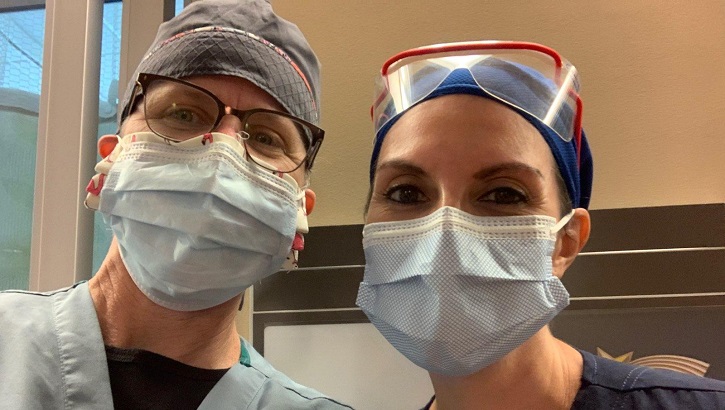
The Air Force Reserve does indeed have a critical need for critical care nurses.
Defending the Homeland: NMRTC Bremerton ensures Operational Readiness and a Medically Ready Force
Article
7/22/2020
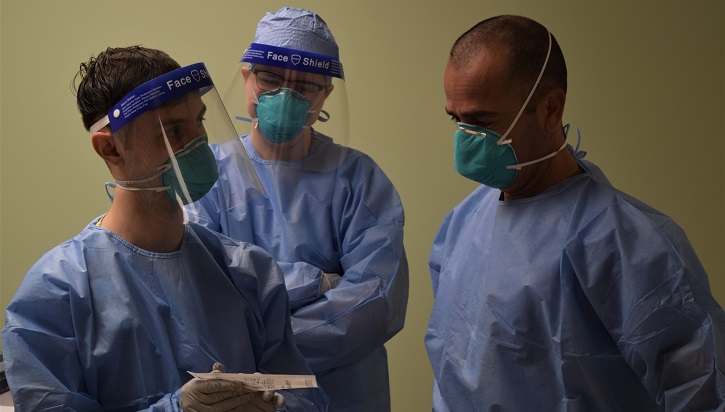
Supporting mission readiness has long been a responsibility for the ready medical force of NMRTC Bremerton.





















.png)












No hay comentarios:
Publicar un comentario